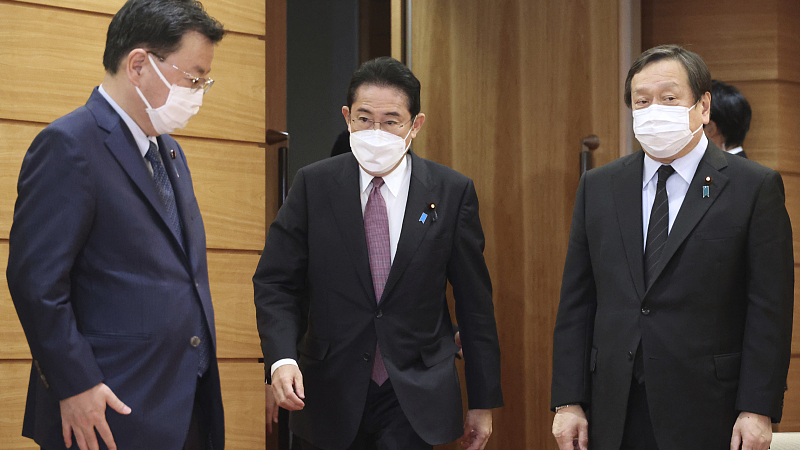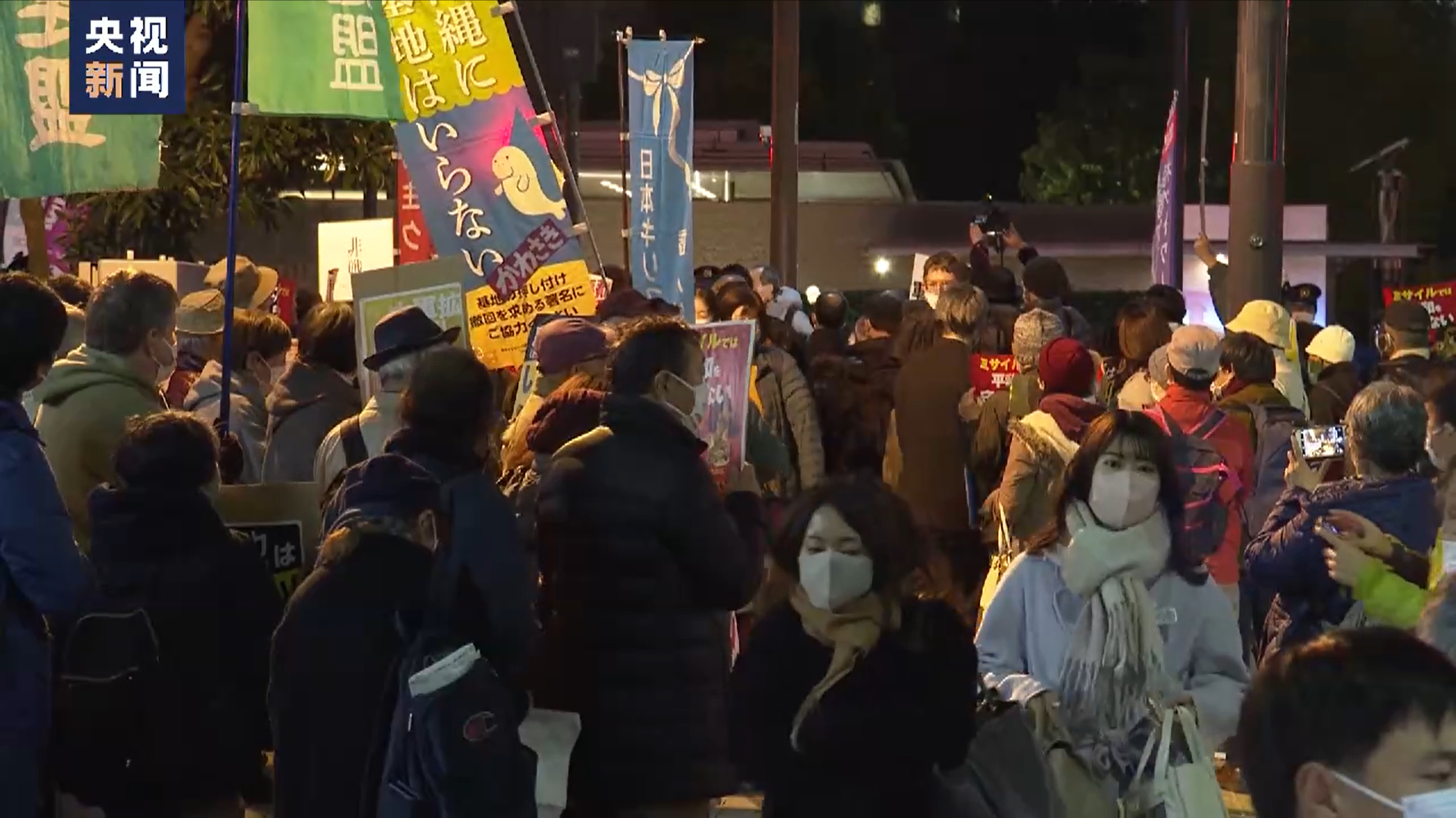
Japanese Prime Minister Fumio Kishida (C) attends a cabinet meeting at the prime minister's office in Tokyo, December 16, 2022. /CFP
Japanese Prime Minister Fumio Kishida (C) attends a cabinet meeting at the prime minister's office in Tokyo, December 16, 2022. /CFP
The Chinese Embassy in Japan on Friday condemned Japan Prime Minister Fumio Kishida's government's comments on China soon after the government passed three newly revised national security policies which claimed China as Japan's biggest strategic challenge.
Embassy: China will not provoke or participate in any arms race
The Chinese Embassy in Japan said that Japan's statements will only stoke regional tensions, calling Japan to get back to the political consensus that "China and Japan are partners, not threats to each other."
The Japanese government on Friday passed three updated security and defense-related documents including the National Security Strategy, marking a significant change to its post-war security policies despite wide opposition.
In these policies, it identified China as the "biggest strategic challenge to date" for Japan, falsely claimed that China's military activities are "serious concerns" of the international community, and accused China's military drills in the Taiwan Straits of posing a "threat" to local residents.
"Such remarks seriously deviate from basic facts, go against the principles and spirit of the four political documents between China and Japan, wantonly incite the China threat theory and stir up regional tensions and antagonism," the Chinese Embassy in Japan stated on its website, adding "China is strongly dissatisfied with and firmly opposed to these remarks and has lodged solemn representations with the Japanese side."
The embassy also noted that China follows the path of peaceful development, pursues a national defense policy that is defensive in nature and will not provoke or participate in any arms race. The purpose of China's military development is to safeguard its sovereignty, security and development interests. Besides, China's positions on the Diaoyu Islands and Taiwan-related issues are clearly firm, and relevant measures taken are entirely within China's sovereignty.
China is always fulfilling its duties to maintain regional and global peace and stability, and China's development brings opportunities and dividends to other countries, rather than threats, challenges or coercion, the embassy said.

Opposition groups gather at Hibiya Hall in downtown Tokyo, Japan, December 9, 2022. /CMG
Opposition groups gather at Hibiya Hall in downtown Tokyo, Japan, December 9, 2022. /CMG
Wide opposition against Japan's security policies
According to Japan's updated national security strategies, the country will acquire the capability to directly attack another country's territory in case of emergency. The policies also stipulated the reorganization of the Japan Self-Defense Forces and a great increase in Japan's military expenditure for the next five years.
About $315 billion will be allocated for defense budgets over the five-year period from fiscal 2023, the documents showed, setting a goal to increase defense spending annually to around two percent of gross domestic products in fiscal 2027. This is Japan's biggest military build-up since World War II, breaking its former defense budget principles that have stood for nearly half a century.
The budget, according to local news reports, would introduce advanced military weapons that can strike directly at enemy missile launch sites, such as long-range missiles bought from the U.S. and others manufactured in Japan. It will also stockpile spare parts and other munitions, expand transport capacity and develop cyber warfare capabilities.
In Japan, many are objecting to the amendments of the three security documents. In Tokyo, hundreds of local citizens held rallies in front of the prime minister's official residence on Thursday and Friday opposing the revision, with participants holding up banners that read "peace can not be created by force."
Some protesters also said that Japan, once waged a war of aggression against China in the past, must stop its military build-up and not repeat its historical mistakes.
"The Japanese government must be questioned. With Article 9 of the Constitution, how is it possible to strengthen Japan's defense capability by increasing the missile power?" asked Miho Aoi, professor of law at Gakushuin University in Japan.
Local experts and some officials including Yoichi Iha, member of the upper house of Japan said that to ease the current tension, it is more important for Japan to conduct peace diplomacy, pursue a security policy that does not create enemies, and foster trust with neighboring countries.
Around 1,500 people also rallied in Tokyo on last Thursday against the government's decision to raise taxes to make up for an expected shortfall in funding to achieve a substantial increase in defense spending.
Some demonstrators criticized that with COVID-19 and sharp consumer goods prices, the number of people living in hardship has increased significantly. The rising defense costs and taxes will only make people's lives harder.
(With input from Reuters and Xinhua)